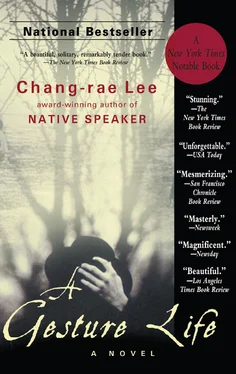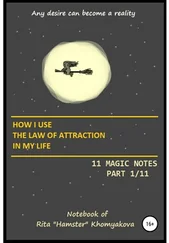“And you were not?”
She didn’t answer for some moments. I heard the rustle of her trousers as she shifted in her chair. “I loved him when he was born. I love him now. But I wasn’t like my sisters or my mother, that way. Perhaps it was because we were closest in age. I was never quite filial, and my father and everyone knew it. Yet my brother never minded. He’s a kindhearted boy.”
“Is he still at home?”
“I must hope so,” she answered, her voice low and quiet. “Or my sister has suffered and died for nothing.”
I told her then, “I am sorry for what happened.”
“Are you really?”
“Yes,” I said, thinking too of Corporal Endo, and how I might have helped him more. “I know you are thinking that it is better that your sister is dead, than serving in the comfort house. But it’s also possible that she could have eventually gone out of this place and had a long and decent life. She could have persevered, as I believe you will.”
K laughed then, though gently and without any tone of derision. I asked her again if I might light the oil lamp, and this time she said I should. The light came up quickly, and in the warm cast she was perfectly radiant, her round face golden and smooth. She seemed to be gazing on me somewhat somberly, as if I had just been born into the difficult world, her eyes bearing a sadness and awe.
She said softly, “You are an unlikely fellow, Lieutenant Kurohata. You should know I am grateful for at least your hopefulness. I do hear that, and I am appreciative. But please let’s rather continue what we were speaking of before, than talk of my sister, or this place. I don’t wish to think of her right now. You understand, I know.”
“Certainly, I do.”
“Thank you, Lieutenant,” she said, bowing her head, just as she might in everyday, civilian life, and I felt suddenly illicit in her presence, as though we’d slipped out of sight of our chaperons and found ourselves in a darkened, private park somewhere.
“Will you tell me more about your growing up? About your schooling? I always like to hear of what others have done.”
“It was nothing too unusual,” I told her. “I finished the upper school and was admitted to the university, but when the war broke out I was reassigned to the military institute instead, for field medical training. Eventually I’ll go to medical school, but I am more than willing to serve in this way now. I’m looking forward to my final training, though, and becoming a surgeon.”
“What kind?”
“I’m not certain yet,” I said to her, though I already knew I’d like to specialize in something like cardiopulmonary surgery. I was afraid to speak aloud my wish, lest it never come to pass. In fact I have always been fascinated by the workings of the heart and lungs, the immortal constancy and vitality of their operation. Before I witnessed the doctor massaging the cobbler’s heart, I had in my childhood seen a butcher quickly kill a small pig, slitting its throat and then immediately cutting it open as it hung from its hind legs. The first swift cut at the sternum was for an instant strangely unbloody, and I could see the quivering heart and the pliant sacs of the lungs, still alive as the pig was for a few moments longer. Since then, I have had the thought from time to time that indeed these were the vessels of the animal’s spirit, and that perhaps our souls, too, reside not in our minds but in the very flesh of us, the frank, gray tissue which seems most remarkably possessed of the will to go on, to persist. Sometimes when one is a physician or a medic or a nurse, the physical body can take on an almost mystical presence, and whether living or not becomes a certain marker of the world, a sign of the wider circumstance. And though she was before me I thought of her again reclining in her sleep before I unlocked the door, this person in a tiny closet-room, this solitary girl in a box.
I said to her, “I’m curious. Why don’t you tell me of how you grew up? Of the schools you must have attended.”
“I don’t have much of any schooling,” she said, surprising me. “Not of the formal kind. I went to grammar school for several years but it was decided by my father that as with my sisters I shouldn’t continue.”
“But you seem quite well educated.”
“I have tried to educate myself,” she answered, with the barest edge of pride. “So after that, all this time, I’ve studied at home, first with my older sisters, and then with my brother. He and I would climb the hill behind our house and I’d secretly read the lessons along with him, and also help him whenever I could. I don’t mean to brag, but I know more Chinese characters than anyone in my family, except, of course, for my father, who was renowned in our province when he was a younger man for his learning and his public recitations of classical poetry. My mother would tell me and my sisters of his speaking, how impressive and brilliant he was, and we grew up idolizing him. We made sure to be absolutely quiet in the mornings, when he read and smoked his pipe in the study.”
“I like to read, too,” I spoke up, “whenever I can. Mostly medical texts, of course, but literature as well. I have enjoyed some modern novels, too, especially several French and German, which I have found to be passionate and distinctly dark, in turn.”
She nodded with a half-smile, and I realized how enthusiastic I probably sounded, as though we were on an initial date, like any two university students. And yet I could hardly contain myself, able to broach such subjects after those many months of drudgery and routine and anxious inaction.
“You’re lucky to have read other kinds of books,” she said. “I’ve only read lesson books and the like, and then when my father was away I might steal into his study and try to read poetry and historical texts. He didn’t have any Western novels among his books, which I would have loved. He would never have them in his library. He always told my brother that we should revere our Asian heritage and protect it from foreign influences, that whether Chinese or Japanese or Korean we were rooted of a common culture and mind and that we should put aside our differences and work together.”
“This is exactly our Emperor’s mandate,” I told her, “to develop an Asian prosperity, and an Asian way of life.”
“Though it seems it is to be a Japanese life,” K said, her tone somewhat ironical. But after a few moments she sensed my quiet and said to me, “I wish that we could read one of those novels you mentioned, and then talk about it. A story set in another land and time in history, with completely different sorts of people. Since I was a little girl, I always wanted to live a completely different life, even if it might be a hard one. I was sure I wasn’t meant to belong to mine. Maybe you can describe the stories to me, and we could pretend we were in their lives, those European people in the novels, involved with their own particular problems, which I am sure must be very compelling.”
“They are interesting,” I said, recalling the figure of a woman in a small French provincial town that was her world, and prison. “And sometimes even tragic.”
“I suppose it ought to be so,” K replied. “Or it wouldn’t be much of a tale, would it, Lieutenant?”
“No,” I said to her, gazing at her face and wondering if she knew how difficult the present life would soon be for her, and for me as well.
Near midnight, I acceded to her request and walked with her to the place where her sister was buried. There was no marker, no sign, just a slight mound of dug-up earth barely noticeable in the moonlight. I waited for her at a respectful distance. As we returned she told me of her two other sisters, who were already engaged to be married and so could not be sent away from home. A recruiter had come to the door with some military police, carrying a list of single young men in the town. They were going to conscript her brother, and as her father had lost his influence and standing and had no money left to bribe them, he could do nothing about it; but he pleaded with them in his study and soon thereafter they left. The next day the recruiter returned by himself, but for K and her sister. Their mother had already prepared each of their bags, their father having spirited his son off somewhere before dawn. She gave them each a fancy silken doll, stuffed inside with a little traveling money. They would help the family, she told them while crying, by going to work in a boot factory outside of Shimonoseki. But when they arrived at the harbor they were immediately transferred onto a cargo ship bound for the Philippines and Singapore, and then boated to Rangoon, before finally being trucked through the forested hills here to the camp. They had not known at all what awaited them, no idea what their true service would be.
Читать дальше











![William Frith - John Leech, His Life and Work. Vol. 1 [of 2]](/books/747171/william-frith-john-leech-his-life-and-work-vol-thumb.webp)
![William Frith - John Leech, His Life and Work, Vol. 2 [of 2]](/books/748201/william-frith-john-leech-his-life-and-work-vol-thumb.webp)